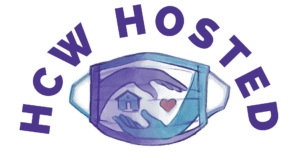I am a nurse heartbroken by the devastating effects of COVID-19.
I am not on the frontlines. I have been plagued with the burden of helplessness. I have witnessed the distress of my healthcare heroes faced with indescribable situations. I have wanted to answer the calling.
My children are not willing to lose their mother because I feel called to help.
If this was 2003, when I began my nursing career, a passionate ICU nurse without a husband, children, responsibilities, I would have been on a plane to New York. I would have answered the weekly texts and emails from Travel Nursing recruiters and gone. I would have given myself where the need was. Not for the large amounts of money offered, but to help. I would be willing to sacrifice myself for the good of the whole– for my team and other nurses.
But now, in 2020, my life is different. My children are not willing to lose their mother because I feel called to help.
I will always feel like I haven’t done enough. The burden of not being on the frontlines is a challenge I wrestle with daily, but my family demands that I do so. They don’t want me to face the devastation that we know the frontline nurses are facing. They do not want me to risk my life or well-being or risk theirs.
Perhaps they would feel differently if nurses had proper PPE. If the system weren’t at a breaking point. If Americans would listen and stop arguing with the scientists. If there was hope for change within the healthcare system.
We understand there will be failures and there will be death.
I have seen death. I have held the hands of dying patients. I have attempted to comfort grieving mothers, one of the hardest things a nurse can do. These experiences are intrinsic to nursing–and they are an integral part of our role if we choose to practice in the ICU or ER. I have worked in both settings.
Most of us go into nursing to help people. To provide compassion and skill to help our patients return to a healthy state. We understand there will be failures and there will be death. Typically, though, the deaths are not a daily occurrence. There are more patient wins than losses. More recoveries than deaths. The difference today is that COVID-19 is overwhelming nurses’ ability to grieve the deaths. The influx of cases and the high mortality rates create feelings of despair and helplessness.
We are not trained as soldiers. We did not sign up to risk our own lives.
Nurses are not trained for overwhelming failures. We are not prepared through the hospitals or school to cope with mass casualty situations. Some have used the analogy of healthcare workers as soldiers facing battle. We are not trained as soldiers.
We do not go to work each shift and expect to be surrounded by death and dying. We do not go to work planning to feel under-prepared, helpless. We did not sign up to risk our own lives. Yet this is what our healthcare workers are facing every day on the frontlines of this pandemic.
How are we helping to keep frontline healthcare workers well? How are we taking care of their emotional needs? Most likely we aren’t.
If one calls out sick, another will be called in to fill the space. But this won’t last forever. Nurses are human and we feel things deeply.
The overwhelming exhaustion, traumatic toll of death, concern for personal health and safety, and relentlessness of this pandemic will impact the ability of nurses and others to continue on.
Without support for our existing frontline workers and the new ones who will be joining the fight, there simply won’t be enough trained professionals to take care of those who need it.
We need to find a way to offer our hands and our hearts to support these amazing individuals who continue to give 100% every day to save lives.
I pray for my healthcare colleagues daily. I suffer with my own moral struggles and feelings of helplessness. I have and always will have hope.

